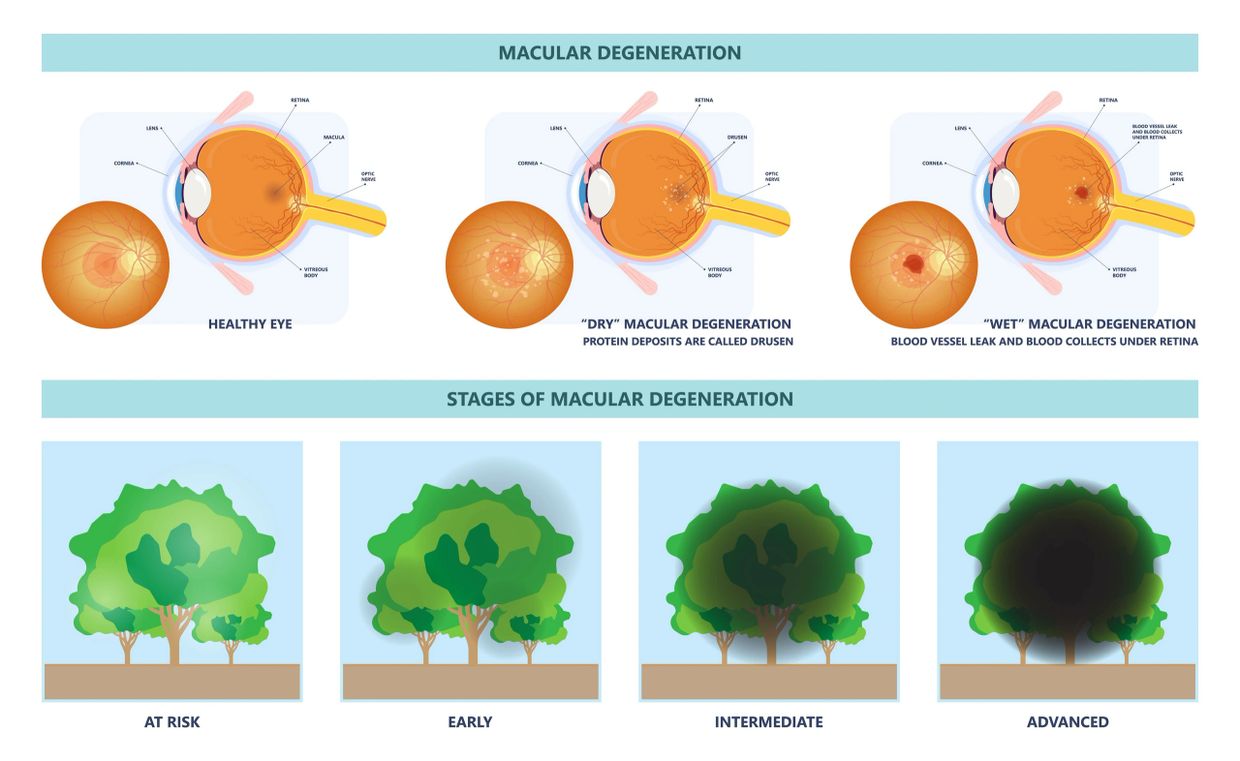
Age-Related Macular Degeneration
What is Age-related Macular Degeneration (AMD)?
AMD is a common eye condition causing vision loss in people over 50 years old. There are two types of AMD: dry AMD, which causes a gradual loss of central vision, and wet AMD, which results in the growth of abnormal blood vessels under the retina, causing scarring. Many people don't realize they have AMD until their vision is blurry, so it's important to have regular visits to an ophthalmologist to look for early signs of AMD.
Who is at risk?
People at risk for AMD include a diet high in saturated fat, being overweight, smoking, being over 50 years old, having hypertension, having a family history of AMD, having heart disease, high cholesterol levels, and Caucasians.
What testing is required?
During an eye exam, an ophthalmologist may use an Amsler grid to detect blurry, distorted, or blank spots in the field of vision. Optical coherence tomography (OCT) and fluorescein angiography (OCTA) are other methods used to examine the retina and macula.
How is it treated?
Dry AMD treatment is currently unavailable, but people with drusen or serious vision loss may benefit from taking a combination of nutritional supplements. A large study found that people with certain drusen may slow their dry AMD by taking vitamins and minerals daily. Eye-healthy foods like dark leafy greens, yellow fruits and vegetables, fish, and a balanced diet have been shown beneficial for people with AMD.
Wet AMD treatment includes anti-VEGF drugs, which help reduce the number of abnormal blood vessels in the retina and slow leaking. Laser surgery may also be used to treat some types of wet AMD.
What else can patients with AMD do to help manage their condition?
To make the most of your vision, you can use special low vision tools, such as magnifying tools, handheld computers, and electronic items. Vision rehabilitation specialists can teach you how to use side vision to help you be as independent as possible. Test your vision with the Amsler grid (pictured below) daily to monitor the progression of AMD.

Patient using an Amsler Grid

Abnormal findings on Amsler Grid